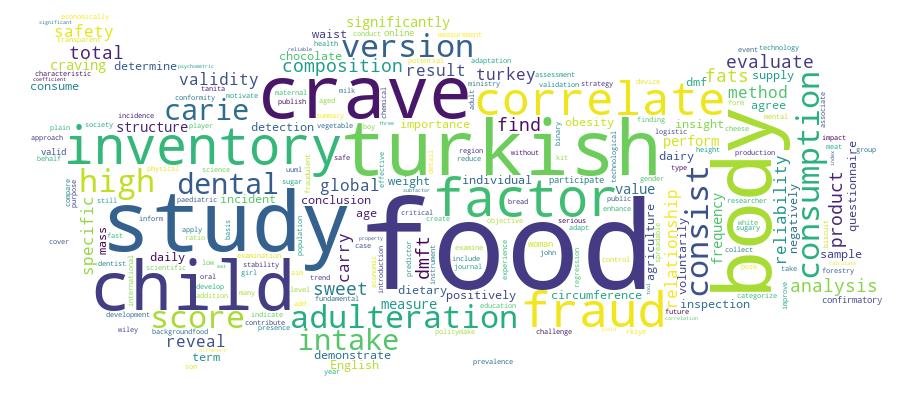Özel, İrem Çağla
Loading...
Profile URL
Name Variants
I. Ç. Özel
Ö., İrem Çağla
I.,Özel
Irem Cagla, Ozel
Ozel, Irem Cagla
O.,Irem Cagla
İrem Çağla Özel
O., Irem Cagla
O., İRem Cagla
Özel,I.Ç.
Ö.,İRem Çağla
I., Ozel
Ozel,Irem Cagla
İrem Cagla, Ozel
I. C. Ozel
Ozel,İ.Ç.
İrem Çağla, Özel
İ. Ç. Özel
Ozel, İRem Cagla
I.C.Ozel
Özel,İ.Ç.
O.,İRem Cagla
İrem Çağla, Özel
Ozel,I.C.
Özel, İRem Çağla
İ.,Özel
I.Ç.Özel
Ö., İrem Çağla
I.,Özel
Irem Cagla, Ozel
Ozel, Irem Cagla
O.,Irem Cagla
İrem Çağla Özel
O., Irem Cagla
O., İRem Cagla
Özel,I.Ç.
Ö.,İRem Çağla
I., Ozel
Ozel,Irem Cagla
İrem Cagla, Ozel
I. C. Ozel
Ozel,İ.Ç.
İrem Çağla, Özel
İ. Ç. Özel
Ozel, İRem Cagla
I.C.Ozel
Özel,İ.Ç.
O.,İRem Cagla
İrem Çağla, Özel
Ozel,I.C.
Özel, İRem Çağla
İ.,Özel
I.Ç.Özel
Job Title
Araştırma Görevlisi
Email Address
cagla.ozel@atilim.edu.tr
Main Affiliation
Nutrition and Dietetics
Status
Website
ORCID ID
Scopus Author ID
Turkish CoHE Profile ID
Google Scholar ID
WoS Researcher ID
Sustainable Development Goals
3
GOOD HEALTH AND WELL-BEING

2
Research Products
17
PARTNERSHIPS FOR THE GOALS

1
Research Products

This researcher does not have a Scopus ID.

Documents
0
Citations
0

Scholarly Output
3
Articles
3
Views / Downloads
18/91
Supervised MSc Theses
0
Supervised PhD Theses
0
WoS Citation Count
10
Scopus Citation Count
8
WoS h-index
2
Scopus h-index
2
Patents
0
Projects
0
WoS Citations per Publication
3.33
Scopus Citations per Publication
2.67
Open Access Source
3
Supervised Theses
0
Google Analytics Visitor Traffic
| Journal | Count |
|---|---|
| Egyptian Pediatric Association Gazette | 1 |
| Journal of Eating Disorders | 1 |
| Journal of the Science of Food and Agriculture | 1 |
Current Page: 1 / 1
Competency Cloud


